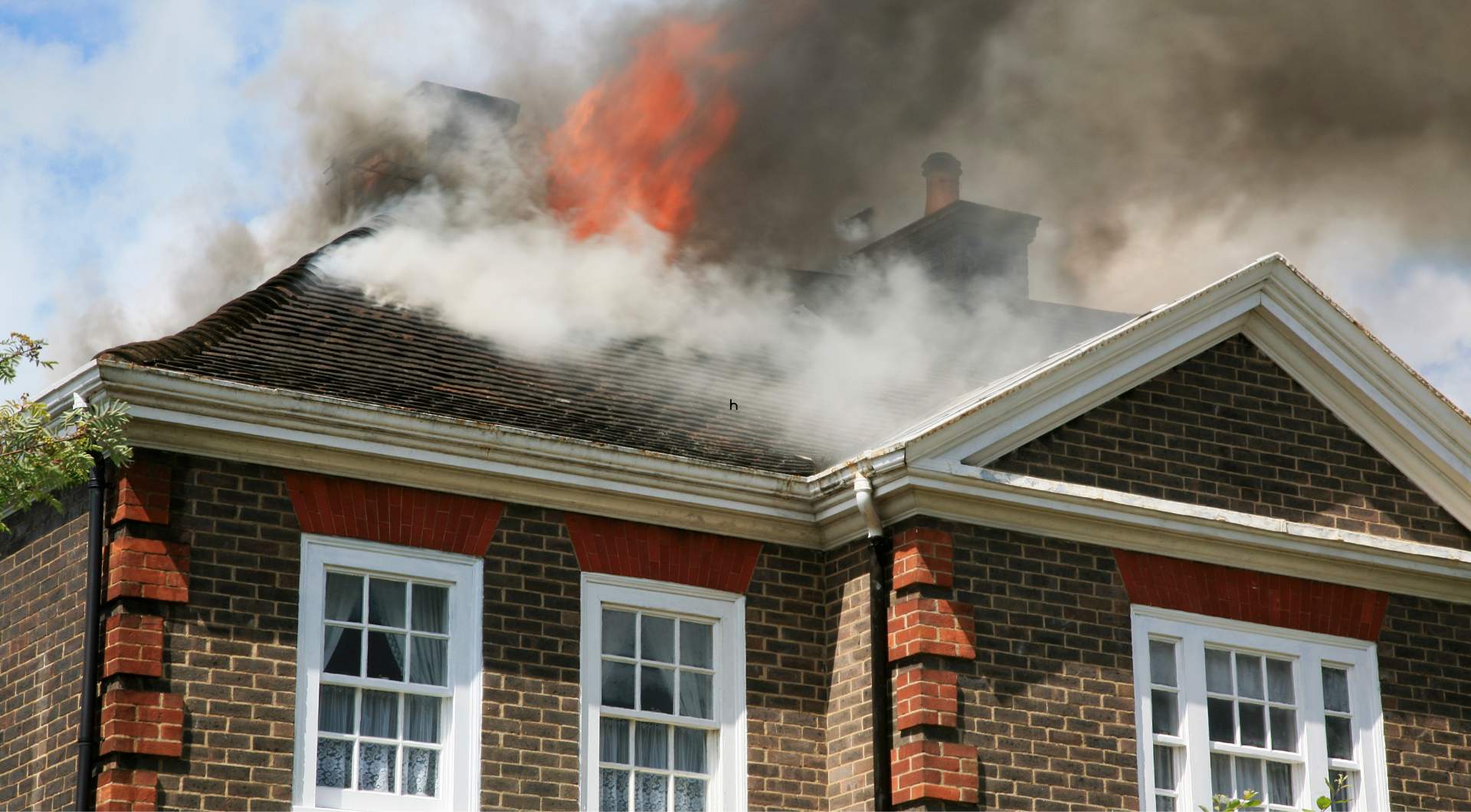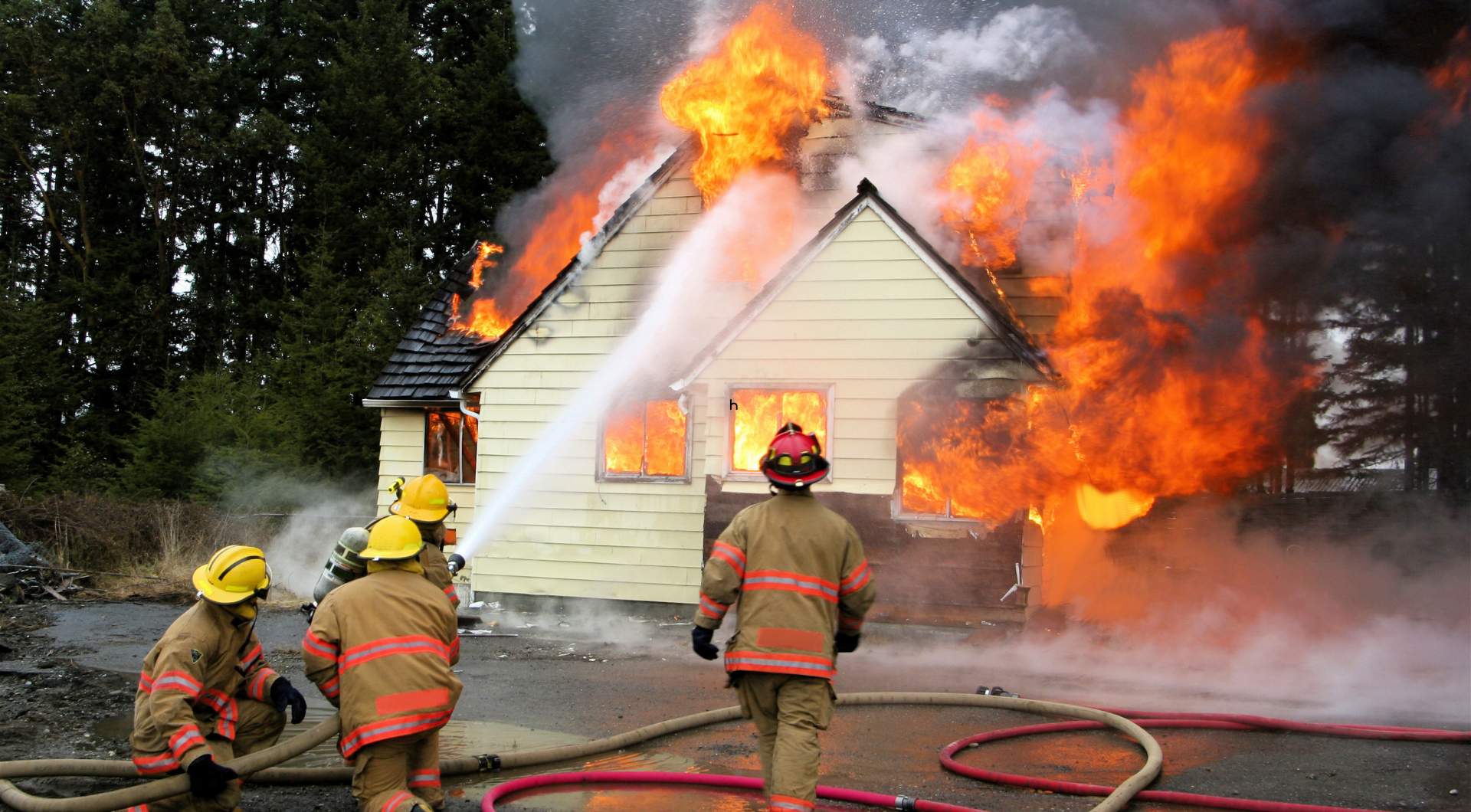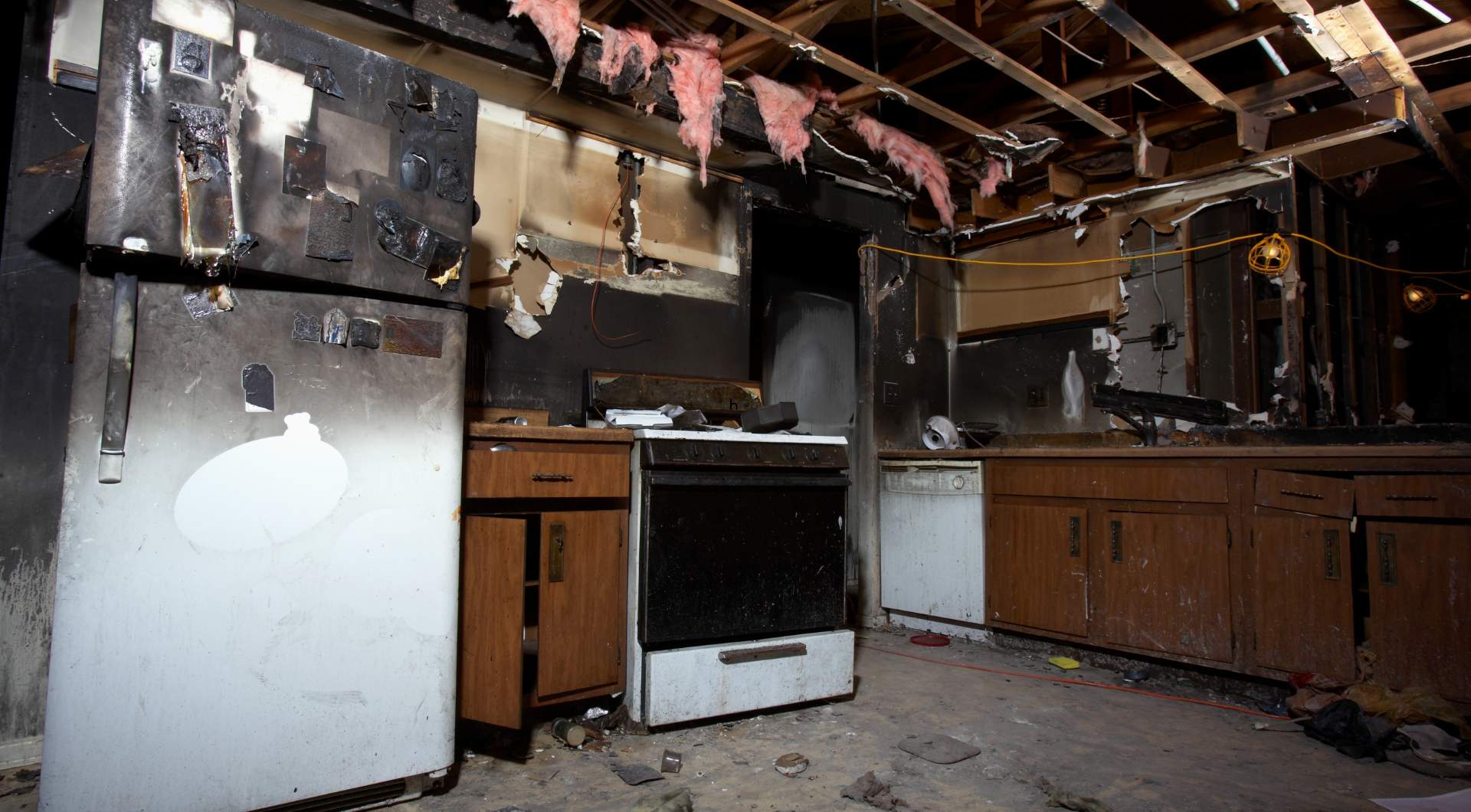A house fire is a traumatic experience leaving individuals or entire families devastated and not knowing what direction to go or the next steps to take.
Coping with the losses resulting from a house fire and figuring out how and when to complete all the tasks necessary to get back to your regular life can be overwhelming, but this is completely normal.
Who do we contact? Can we save any of our belongings? Will our insurance cover some or all of the cost of our loss?
Follow the next suggestions as a guide on how to proceed following a house fire — coping physically, emotionally, and financially in the days to come.

Table of Contents
- How Do You Deal With the Aftermath of a House Fire?
- What To Do After a House Fire: A Checklist
- What Not To Do After a House Fire
- Do I Need Professional Help To Clean Up After a House Fire?
- PURE Environmental: Professional, Innovative Fire Remediation Services in Portland and Seattle
How Do You Deal With the Aftermath of a House Fire?
The aftermath of a house fire can be chaotic and confusing, and it may be helpful to follow a guide or checklist to ensure a comprehensive thought process rather than trying to think of everything on your own.
House fires can cause more than just visible damage, such as the smell of smoke permeating throughout the home or water damage resulting from extinguishing the fire — damage that often extends much further into your home than just at the location of the fire.
Additionally, understand that restoration and returning to your home may not be a quick process depending on the extent of the damage, as it may take months or even over a year to return to the location of a significant fire.
What steps should I take after a house fire?
- Ensure everyone is safe.
- Contact your insurance company.
- Assess the damage or after-effects.
- Do not disturb the scene until cleared to do so by your insurance company or the fire department.
- Attend to your immediate finances.
- Secure valuable documents and records.
- Select a fire mitigation company.
What To Do After a House Fire: A Checklist
#1: Ensure Everyone Is Safe
First and foremost, be sure all family members are safe.
Do not attempt to enter your home following the fire without the fire department or fire marshal determining that it is safe to do so. You might think it is safe to enter the home once the fire is extinguished, but numerous hazards may still be present.
Potential health or safety hazards to consider following a fire:
- Damaged structure of the home from fire and water
- Exposed wires or electrical hazards
- Compromised gas lines
- Fumes or harmful particles in the air — wear a protective mask or respiratory equipment upon entering the building, such as an N-95 mask
- Hot spots from lingering fire or ashes
Especially since a large number of fires are caused by cooking, heating, or electrical malfunctioning, it is important to be sure the hazard has been corrected or removed. Follow the advice of the professionals to remain safe and avoid further injury or unnecessary harm to yourself or others.
#2: Call Your Insurance Company
If you own your home, contact your insurance company to begin a claim.
If you rent, contact your landlord and insurance company.
Your insurance company may have contracts or recommendations for fire mitigation services — be sure to follow their recommendations for companies if they have binding contracts with them to ensure cost coverage.
Make sure you understand if the insurance company will pay for clean-up, and be sure not to sign any agreements or contracts before thoroughly reading them.
Request estimates to be provided to you in writing.
What To Do After a House Fire With No Insurance Coverage
It is important to secure homeowner’s or renter’s insurance for possible events such as fires, floods, or weather events beyond your control — as you will be able to rebuild and replace your belongings at little to no cost to you.
However, if you do not have insurance, your family, friends, and community may be helpful in getting you back on your feet.
In addition to people you know, there are also organizations that can provide assistance with both housing and general needs:
- American Red Cross
- The Salvation Army
- Goodwill Industries
- Local church organizations and food pantries
- Community groups
- State or municipal emergency services organizations
#3: Assess the After-Effects
Was your fire contained to a small area in the kitchen? Contained to one room? Or was the fire extensive and involved multiple rooms or the entire home?
What products were utilized to extinguish the fire? Were there fire extinguishers used with powder, or was there an extensive amount of water to control the blaze?
The size of the fire and the method of control utilized can largely contribute to what can be salvaged in the home. Additionally, was there heavy smoke present? The fire department will ventilate the area as much as possible, but smoke odor and soot may remain, causing many items to be ruined.
Regardless of the apparent damage, the scene needs to be determined to be safe to enter the building prior to any salvage process. Electrical circuits and gas lines may need to be turned off, along with ensuring the structure walls and floors remain sound.
It is not worth injury or loss of life to enter an unsafe situation.
#4: Don’t Disturb Roped-Off Areas
After a fire, fire departments may secure areas of potential investigation. These areas may need to be examined by the fire marshal, police, or your insurance company.
It is vital not to disturb these areas, as the authorities may be trying to determine the cause of the fire or liability for damages. If the scene is disturbed, it may change the outcome of your insurance claim.
#5: Attend to Your Finances
Legal documents:
Begin contacts with appropriate agencies and banks to replace legal documents, credit, or bank cards.
Take photos:
Take photos of items destroyed in the fire such as vehicles, jewelry, or other costly possessions — the photos may be helpful as proof when submitting claims of lost items.
Save receipts:
Save receipts of any money spent on replacing necessary items, temporary lodging or rent, or other expenditures related to the fire. They will be necessary to provide proof to your insurance company along with claiming losses on your next income tax return filing.
#6: Secure Valuable Documents and Records
Consider replacing these documents if they were damaged in the fire:
- Driver’s license
- Passport
- Citizenship papers
- Titles and deeds
- Insurance policies
- Auto registrations
- Birth, marriage, and death certificates
- Social Security card
- Medicare card
- Credit and debit cards
- Stocks or bond certificates
- Will
- Medical records
- Income tax records

#7: Select a Fire Mitigation Company
Some fire mitigation companies may arrive at the scene of the fire quickly, possibly at the same time as the firefighters and first responders. Their goal is to offer services to the homeowner as soon as possible and sign contractual agreements for their remediation services. They may state they have been sent by your homeowner’s insurance company.
Do not sign any agreements or contracts without research. Generally speaking, a company that appears during a house fire or immediately thereafter is not one that has your best interest in mind.
Speak to several mitigation companies and compare available services before signing any contracts.
What should you consider when searching for a fire mitigation company?
If you have experienced a house fire that resulted in damage to your home, you need high-quality services and professionals you can trust that will allow you to return to your home as quickly as possible.
Pure Environmental professionals assess your situation and needs with extensive knowledge, skills, and experience, and complete projects with optimal customer service as a goal. Contact Pure Environmental for our environmentally friendly approach to fire and emergency mitigation services.
What Not To Do After a House Fire
The fire is out, and it appears to have minimal damage to our home. We can just return, correct? No.
Anyone would prefer to return home and not have their life in upheaval following a significant event like a fire, but there are numerous factors to consider to maintain health and safety.
What not to do after a house fire:
- Don’t restore electricity or gas to the home without checking that it is safe to do so. Contact your utility company to ensure safety.
- Don’t rush the cleaning process. Be sure to gather appropriate supplies and products, as improper cleaning or products could worsen the damage.
- Avoid eating foods that were in contact with or near the fire. The packaging could have compromised the food or activated bacteria in the food due to the heat. It is better to discard the food for safety.
- Don’t leave your property unsecured if you do not plan to stay there. Board up damaged windows or doors if they are broken or unable to be locked.
- Don’t hesitate to ask for help, as cleaning up from a fire can be tedious and difficult!
Do I Need Professional Help To Clean Up After a House Fire?
Even with small house fires that may be contained to one room such as a kitchen or laundry room, residual smoke and soot damage can result in much more damage than initially realized. A small fire can cause relatively major damage in a short amount of time.
Cleaning soot and smoke properly is important, as the lingering odors can permanently damage your home and adversely affect your health.

PURE Environmental: Professional, Innovative Fire Remediation Services in Portland and Seattle
Professionals like Pure Environmental have the tools, knowledge, and experience for proper repair and restoration of your property, allowing you to return to your routine as fast as possible.
Trust our knowledgeable team to utilize cutting-edge, environmentally-friendly technologies to help mitigate the damages your house has suffered, allowing it to become your home once again.
Recent posts
- Pros and Cons of Heat Treatment for Bed Bugs: Things To Consider When Reviewing Your Options for Remediation
- How To Get Rid of Pet Odor in Your House
- Clearing the Air: How To Clean Walls From Cigarette Smoke
- Deodorizing Your Living Space: How To Get Rid of a Musty Smell in Your House
- How Do You Get Rid of Mold in Your Attic? Tips from the Professionals
Recent Posts
- Pros and Cons of Heat Treatment for Bed Bugs: Things To Consider When Reviewing Your Options for Remediation
- How To Get Rid of Pet Odor in Your House
- Clearing the Air: How To Clean Walls From Cigarette Smoke
- Deodorizing Your Living Space: How To Get Rid of a Musty Smell in Your House
- How Do You Get Rid of Mold in Your Attic? Tips from the Professionals
